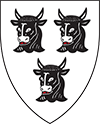Fellows
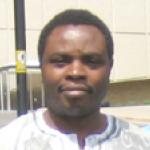 |
John Wa'NjoguAfrican StudiesJohn Wa’Njogu’s interests include foreign language curriculum development, teaching methodology, material development, and assessment. Other areas of interest are language planning, language and democracy, ethnicity, Kiswahili and other African literatures and literary criticism. Email John Wa'Njogu |
 |
John WargoSchool of Forestry and Environmental StudiesJohn Wargo is a Professor of Environmental Health and Politics at the Yale School of the Environment and Chair of the Yale College Environmental Studies Major and Program. His research explores threats to human health posed by environmental hazards, including exposures to pesticides, vehicle emissions, toxins in foods, plastics, flame-retardants, metals, and chemicals released outdoors and indoors. His current research examines environmental and health challenges associated with the global food system. He has advised many government agencies including the World Health Organization, the Food and Agriculture Organization, the US EPA, CDC, FDA, USDA to assist in the development in risk assessments and regulatory programs. He teaches courses in Yale College, and YSE, and holds a visiting faculty appointment at the University of Basel in Switzerland. From 2016-2020 he was a Resident Fellow in Trumbull College. Email John Wargo |
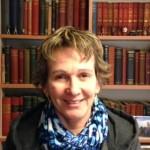 |
Marta WellsEcology & Evolutionary BiologyMarta Wells, originally from Colombia, is a Senior Lecturer in the Department of Ecology & Evolutionary Biology at Yale, and a Research Scientist in the Department of Ecology and Evolutionary Biology at The University of Connecticut. She came to Yale in 1997, and has been teaching and advising students since. Among the courses she has taught are: Biology of Terrestrial Arthropods, Laboratory for Biology of Terrestrial Arthropods, Animal Behavior, Introduction to Biology, Diversity of Life, Laboratory for Evolutionary Biology, Laboratory for Principles of Ecology, Evolution and Behavior, Laboratory on Evolution, Functional Traits, and The Tree of Life. In addition to teaching, Marta is an Academic Advisor for undergraduate students in the Ecology and Evolutionary Biology Department, Mellon-Bouchet Fellows, and a sophomore advisor. In addition, she advises students doing their research and tutorial courses and does all the corresponding administrative work, as wells as organizing and running the E&EB Undergraduate Senior Symposium every year. Marta’s research interests are with insects, using green lacewings as model systems to investigate topics in Evolution, species origins, behavior, acoustic signals, and phylogenetic systematics. Email Marta Wells |
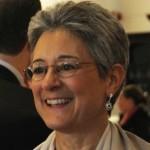 |
Tamar WellsMusicianTamar Wells is a founding member of the Grammy-nominated Borealis Wind Quintet and the principal oboist of the Greater Bridgeport Symphony. She is also well acquainted with the underside of her sea kayak as she and her husband, Rich, work toward their BCU level 3 kayak certification, a piece of which requires their skill of rolling to be at least rudimentary. They enjoy ballroom dancing, and taking lessons in “how not to be embarrassed on the dance floor.” In the interest of communication with new Brazilian in-laws, Tamar is attempting to learn Portuguese, which she finds delightful! They divide their time between Northwest CT and the coast of RI. Email Tamar Wells |
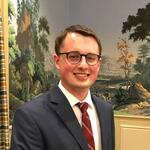 |
Eli WestermanSummer SessionEli may be relatively new as a Trumbull Fellow, but he’s a seasoned member of the Yale community. He earned his B.S in Chemical Engineering and Classical Civilization from Yale in 2018 and was proud to serve as a Trumbull FroCo. As the Communications Manager at Yale Summer Session, he runs campus outreach, manages the advertising campaigns, and develops collateral materials. An avid hiker, he has planted a foot atop every 5,000-foot peak in New Hampshire and is also certified as a Wilderness First Responder. He also enjoys learning about New Haven’s history, exploring New England, and cooking. Email Eli Westerman |
 |
R. John WilliamsEnglishJohn William’s research and teaching focuses on the intersections between international histories of technological innovation and the perceived difference of racial and cultural otherness. His current book project, “Technology and the Meeting of East and West,” examines the role of technological discourse in representations of Asian/American aesthetics in late-nineteenth and twentieth century film and literature. He argues that insofar as Anglo American modernism based its aesthetic innovations on a range of new technologies, it did so by throwing into question the relation of these technologies to the cultural traditions from which it seemed to break. It is from this vantage that Asia signaled both the perilous transnationalization of Western technologies as well as an especially therapeutic and non-alienated relation between technê and the environment. Email R. John Williams |
 |
Brendan WooYale School of ManagementBrendan Woo is assistant director of Asia program operations in the executive education department at the Yale School of Management. In this role, he leads the delivery of Yale’s non-degree programs for Chinese business leaders, both in New Haven and in China. He is also responsible for recruiting and managing the executive education student workforce. Prior to Yale SOM, Brendan had a seven-year tenure with the Yale-China Association, a nonprofit organization dedicated to inspiring Chinese and Americans to learn and serve together, where he worked in a variety of teaching, recruiting, coaching, development, and strategic roles in New Haven as well as Hong Kong and Anhui Province, China. He holds a BA in linguistics from Yale University, where he was a member of the varsity swimming team and the Guild of Carillonneurs. Email Brendan Woo |
 |
Jonathan WyrtzenSociologyJonathan Wyrtzen is a comparative-historical sociologist with teaching and research interests in North African society and politics. He works on the areas of state formation and non-state forms of political organization; colonialism and empire; ethnicity and nationalism; urban and rural contentious politics; and Islamic social movements. He has recently completed a book manuscript titled, Making Morocco: Colonial Intervention and the Politics of Identity, that examines the relationships among European imperial expansion, colonial policies of modernization and state formation, and the rise of Arabo-Islamic nationalism in North Africa in the mid-20th century. This study also explores the central roles of three marginal groups – Imazighen (Berbers), Jews, and women - in defining Moroccan identity during the mobilization of anti-colonial nationalism. He is beginning a comparative project examing the transformation of political space in the North Africa and the Middle East in the 1920s, looking at movements defending local autonomy in Morocco, Libya, Syria, Anatolia, and the Arabian Peninsula. Email Jonathan Wyrtzen |

